Related Research Articles
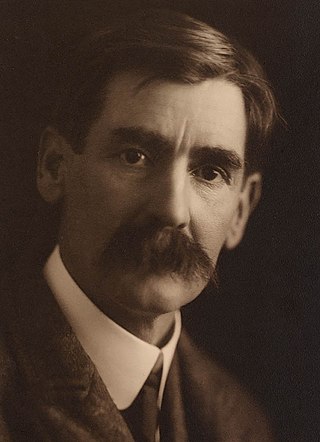
Henry Archibald Hertzberg Lawson was an Australian writer and bush poet. Along with his contemporary Banjo Paterson, Lawson is among the best-known Australian poets and fiction writers of the colonial period and is often called Australia's "greatest short story writer".
Julian Randolph Stow was an Australian-born writer, novelist and poet.
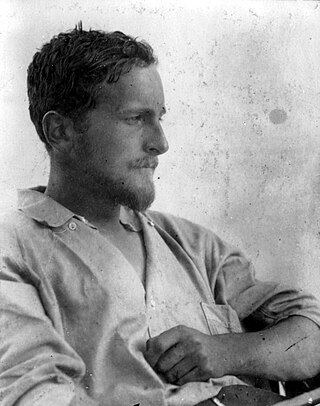
Elliot Lovegood Grant Watson was a writer and biologist. Among some 40 books and many essays and short stories he wrote six 'Australian' novels and several scientific-philosophical works that challenge Darwinism, or the mechanism of evolutionary theory, as an entire explanation for the development of life on earth.
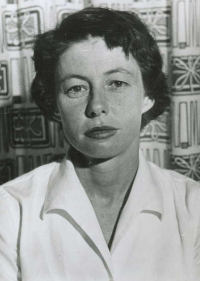
Thea Beatrice May Astley was an Australian novelist and short story writer. She was a prolific writer who was published for over 40 years from 1958. At the time of her death, she had won more Miles Franklin Awards, Australia's major literary award, than any other writer. As well as being a writer, she taught at all levels of education – primary, secondary and tertiary.

Timothy John Winton is an Australian writer. He has written novels, children's books, non-fiction books, and short stories. In 1997, he was named a Living Treasure by the National Trust of Australia, and has won the Miles Franklin Award four times.

Australian literature is the written or literary work produced in the area or by the people of the Commonwealth of Australia and its preceding colonies. During its early Western history, Australia was a collection of British colonies; as such, its recognised literary tradition begins with and is linked to the broader tradition of English literature. However, the narrative art of Australian writers has, since 1788, introduced the character of a new continent into literature—exploring such themes as Aboriginality, mateship, egalitarianism, democracy, national identity, migration, Australia's unique location and geography, the complexities of urban living, and "the beauty and the terror" of life in the Australian bush.
Gerald Murnane is an Australian novelist, short story writer, poet and essayist. Perhaps best known for his 1982 novel The Plains, he has won acclaim for his distinctive prose and exploration of memory, identity, and the Australian landscape, often blurring fiction and autobiography in the process. The New York Times described Murnane in 2018 as "the greatest living English-language writer most people have never heard of", and he is regularly tipped to win the Nobel Prize in Literature.

Catherine Elizabeth Grenville is an Australian author. She has published fifteen books, including fiction, non-fiction, biography, and books about the writing process. In 2001, she won the Orange Prize for The Idea of Perfection, and in 2006 she won the Commonwealth Writers' Prize for The Secret River. The Secret River was also shortlisted for the Man Booker Prize.
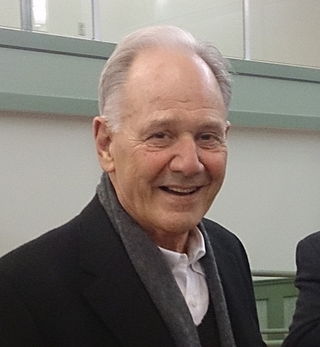
Alexander McPhee Miller is an Australian novelist. Miller is twice winner of the Miles Franklin Award, in 1993 for The Ancestor Game and in 2003 for Journey to the Stone Country. He won the overall award for the Commonwealth Writer's Prize for The Ancestor Game in 1993. He is twice winner of the New South Wales Premier's Literary Awards Christina Stead Prize for Conditions of Faith in 2001 and for Lovesong in 2011. In recognition of his impressive body of work and in particular for his novel Autumn Laing he was awarded the Melbourne Prize for Literature in 2012.
Carmelina Marchetta is an Australian writer and teacher. Marchetta is best known as the author of teen novels, Looking for Alibrandi, Saving Francesca and On the Jellicoe Road. She has twice been awarded the CBCA Children's Book of the Year Award: Older Readers, in 1993 and 2004. For Jellicoe Road she won the 2009 Michael L. Printz Award from the American Library Association, recognizing the year's best book for young adults.
Douglas Stewart was a major twentieth century Australian poet, as well as short story writer, essayist and literary editor. He published 13 collections of poetry, 5 verse plays, including the well-known Fire on the Snow, many short stories and critical essays, and biographies of Norman Lindsay and Kenneth Slessor. He also edited several poetry anthologies.

Joan Elizabeth London is an Australian author of short stories, screenplays and novels.

Chloe Melisande Hooper is an Australian author.
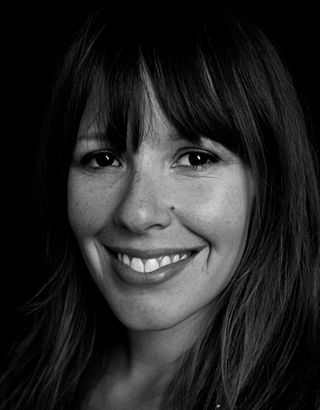
Tara June Winch is an Australian writer. She is the 2020 winner of the Miles Franklin Award for her book The Yield.

Gilgamesh, published in 2001, is the first full-length novel written by Joan London. It is inspired by the Epic of Gilgamesh, the world's oldest known poem.

Mary Beatrice Watson, was an Australian folk heroine in Queensland. She died aged 21 on a small island of the northern Great Barrier Reef with her son and a servant, after escaping an attack on Lizard Island, where she had settled with her fisherman husband not long before. Watson's story was subsequently retold in numerous newspaper and folk accounts, including heroic poems, usually with little attention given to the Aboriginal and Chinese aspect of the events.
This article presents a list of the historical events and publications of Australian literature during 1968.
This article presents a list of the historical events and publications of Australian literature during 2016.
Jacqueline Frances Kent is an Australian journalist, biographer and non-fiction writer. She is also known as Jacquie Kent, the name she used when writing young adult fiction in the 1990s and sometimes writes as Frances Cook.
Diane Armstrong is an Australian novelist, biographer and freelance journalist and travel writer.
References
- ↑ "Suzanne Falkiner". UWA Publishing. Retrieved 11 March 2020.
- ↑ "Suzanne Falkiner". Brio Books. Retrieved 11 March 2020.
- ↑ "Mick: A Life of Randolph Stow". State Library of New South Wales. Retrieved 16 August 2017.